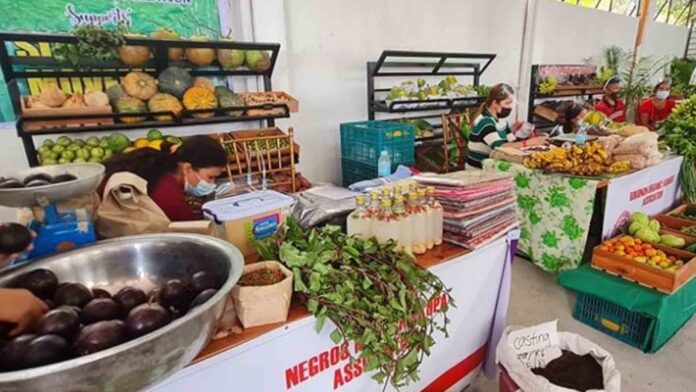Negrense advocates are pioneering the slow food travel model in the Philippines, which is also a first-of-its-kind outside Europe.
Organic food producer Ramon Uy Jr., a member of Slow Food Community- Negros Island, said in a statement on Tuesday the concept will be a unique tourism product of Western Visayas, noting that slow food development is one of the thrusts of the Department of Tourism under Secretary Bernadette Romulo-Puyat.
According to slowfood.com, slow food travel offers a new model for tourism, made up of meetings and exchanges with farmers, cheesemakers, herders, butchers, bakers, and winegrowers who, along with the chefs who cook their products, will be the narrators of their local areas and unique guides to the local traditions.
In Europe, slow food travel destinations include the Carinthia in Austria; Biella mountains in northern Piedmont, Italy; Upper Tanaro Valleys in the southeast of Piedmont; Grand Entremont, between the northern and southern Alps, and Fully Spread in Switzerland.
Uy said they launched the slow food travel project during the two-day Pop-Up Earth Markets held at May’s Organic Garden in the city on March 27 and 28.
“Slow food travel is known in Europe, so we’re having it here in the region. The end-goal is to bring economic benefits to the rural areas,” he added.
The project is a partnership between the Slow Food Community-Negros Island, Department of Tourism, Department of Agriculture, Central Philippine State University, and Slow Food International.
Under the initiative, training on slow food product development and capacity-building will be held mainly for industry stakeholders, particularly the farmers.
The first virtual training will be held on April 21, which will be conducted by the Slow Food International based in Italy.
Another activity is a biodiversity mapping for the identification of biodiversity hot spots in Negros.
The island has a rich biodiversity, including the batuan fruit, a souring agent endemic in Negros and some parts of Western Visayas and found to have four varieties, Uy said.
“We will identify, document, and catalogue these varieties. It will then be part of our root or story of our slow food travel project. This will enable us to prepare for the implementation of slow food travel like the creation of tour packages highlighting our rich biodiversity,” he added.
Uy pointed out that the guiding principles of slow food include supporting small-scale farmers producing good, clean, and fair food as well as agro-ecology preservation.
One of the projects of Slow Food International is the “Ark of Taste” which catalogs endangered heritage food such as batuan, kadyos (pigeon peas), criollo cacao, and darag chicken, which is native to the islands of Panay, Guimaras, and Negros.
In Negros Occidental, there are 23 items listed in the catalog.
“By documenting them, we are preserving our heritage food, our stories, for the future generation to know. If not, it will easily be forgotten,” Uy said.
The Slow Food Community of Negros Island commits to “promoting and preserving the traditional food of Negros Island” and to changing the local food system one step at a time. (PNA)






